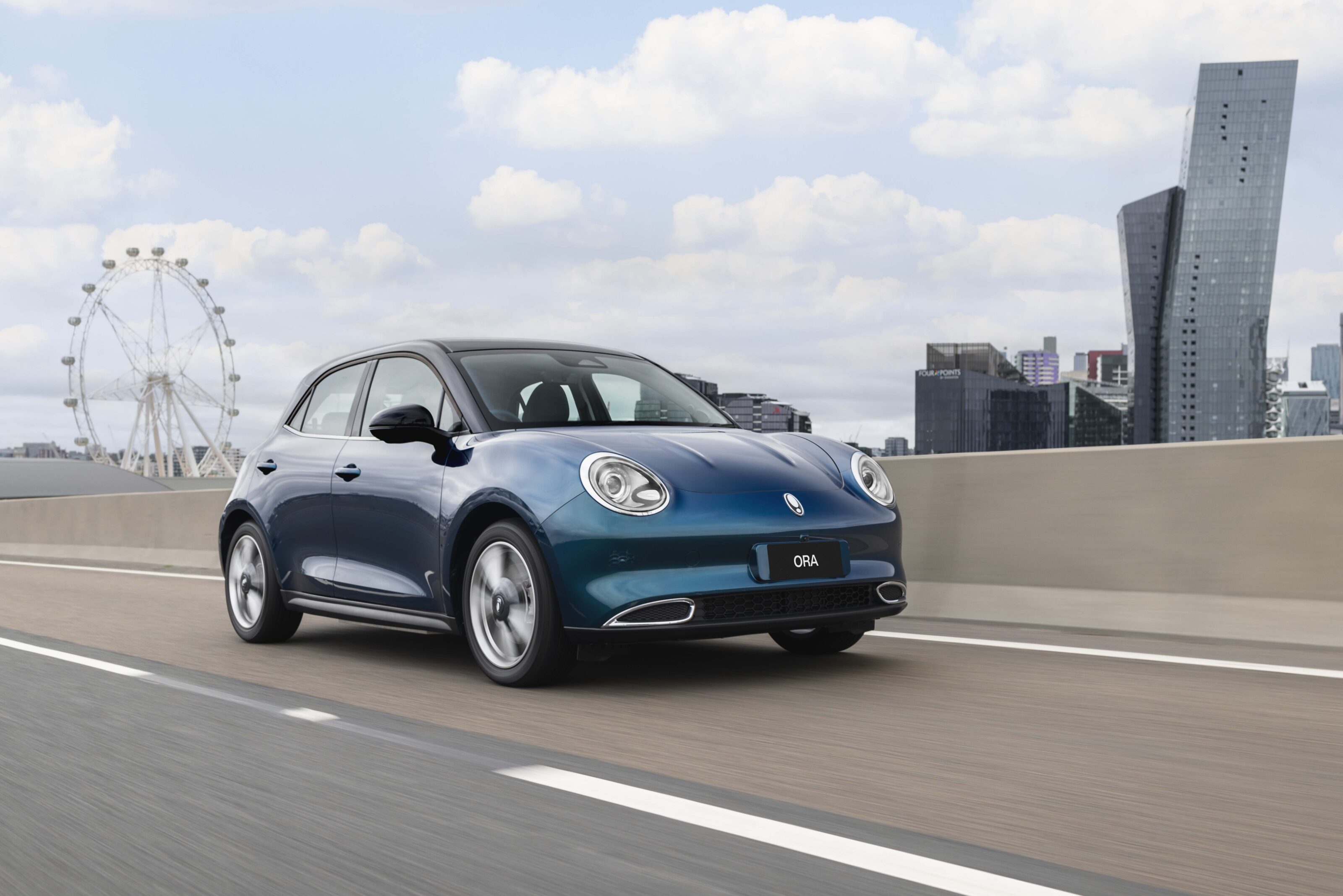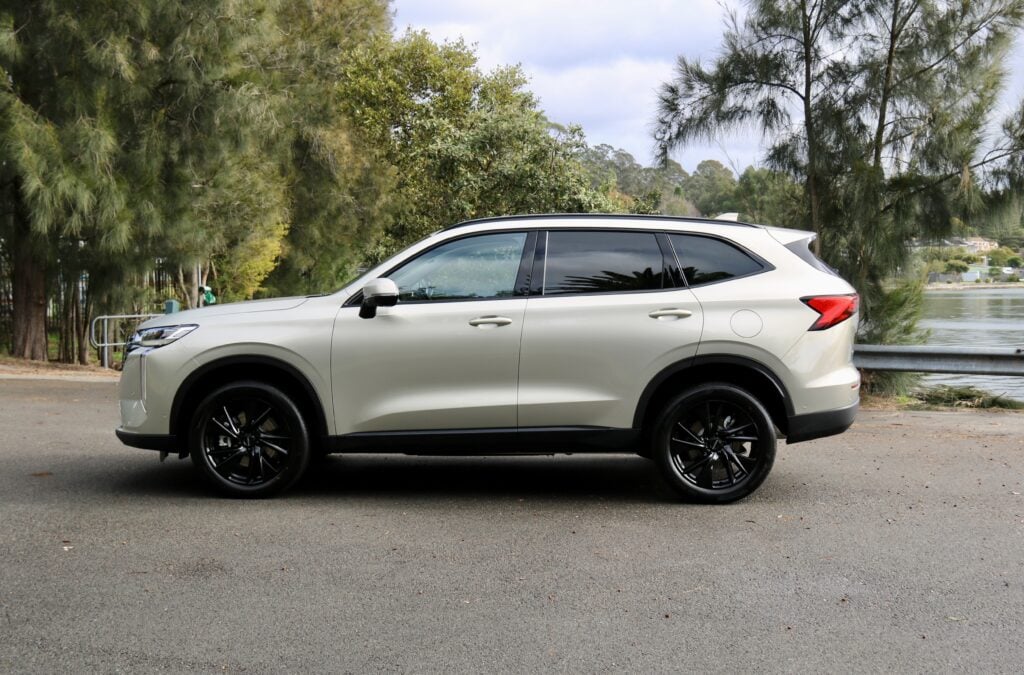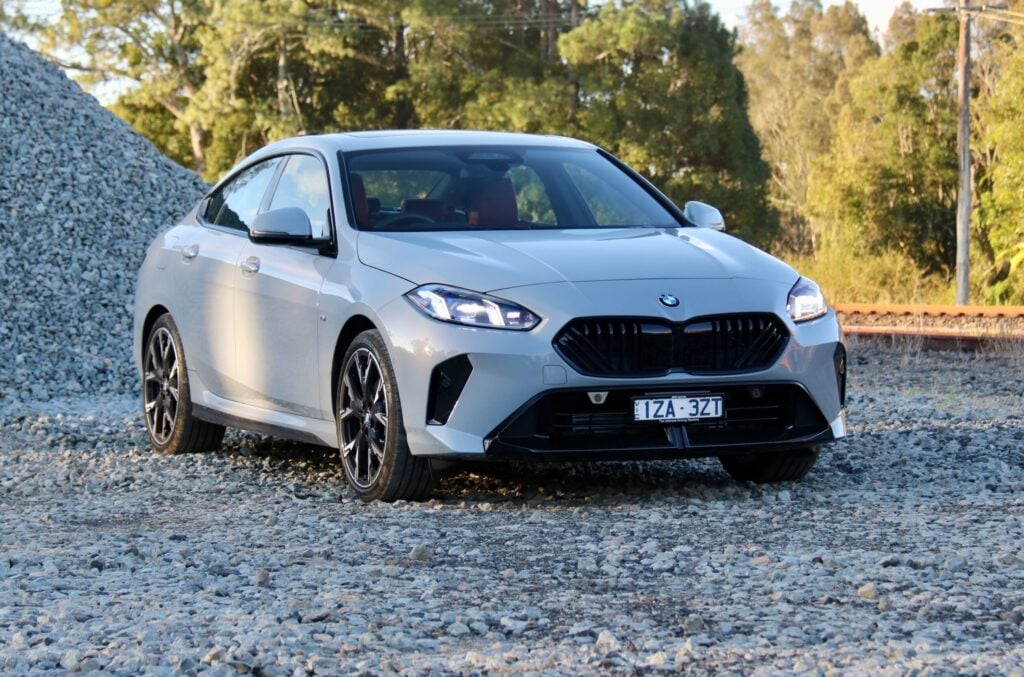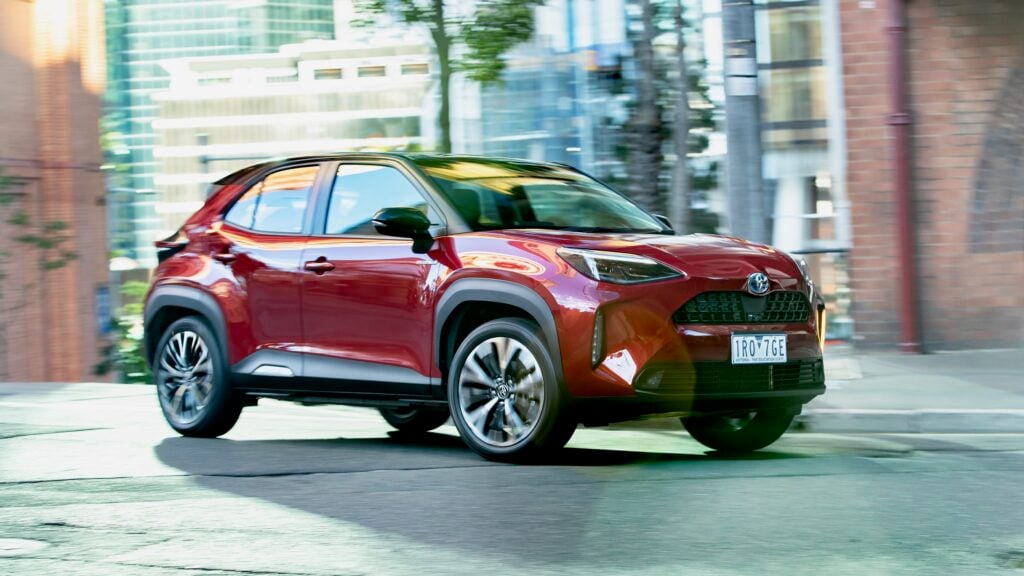Things we like
- Cabin design and execution
- Plush ride quality
- Spacious back seat
Not so much
- Vague steering feel
- Unresponsive throttle
- Small boot with high load lip
You’ve probably heard of GWM, be it via the Ute, Haval SUVs or even the Funky/Good Cat electric cars making noise in Europe and China.
But you may not be aware that GWM is a 39-year-old Chinese manufacturer that sold over one million vehicles in 2022. Of that massive number, about 900,000 GWM products remained on Chinese turf.
It’s no secret that China is a huge market, but GWM’s eyes are set on global expansion. Exports increased 20 per cent from 2021-22 and, being the brand’s largest single export market, Australia will play a big role in GWM’s success.
GWM has ditched the Funky Cat/Good Cat badging for the introduction of its first electric vehicle in Oz under its ‘One GWM’ expansion plans. The small electric hatchback that will hit dealers in April will be known simply as the GWM Ora here.
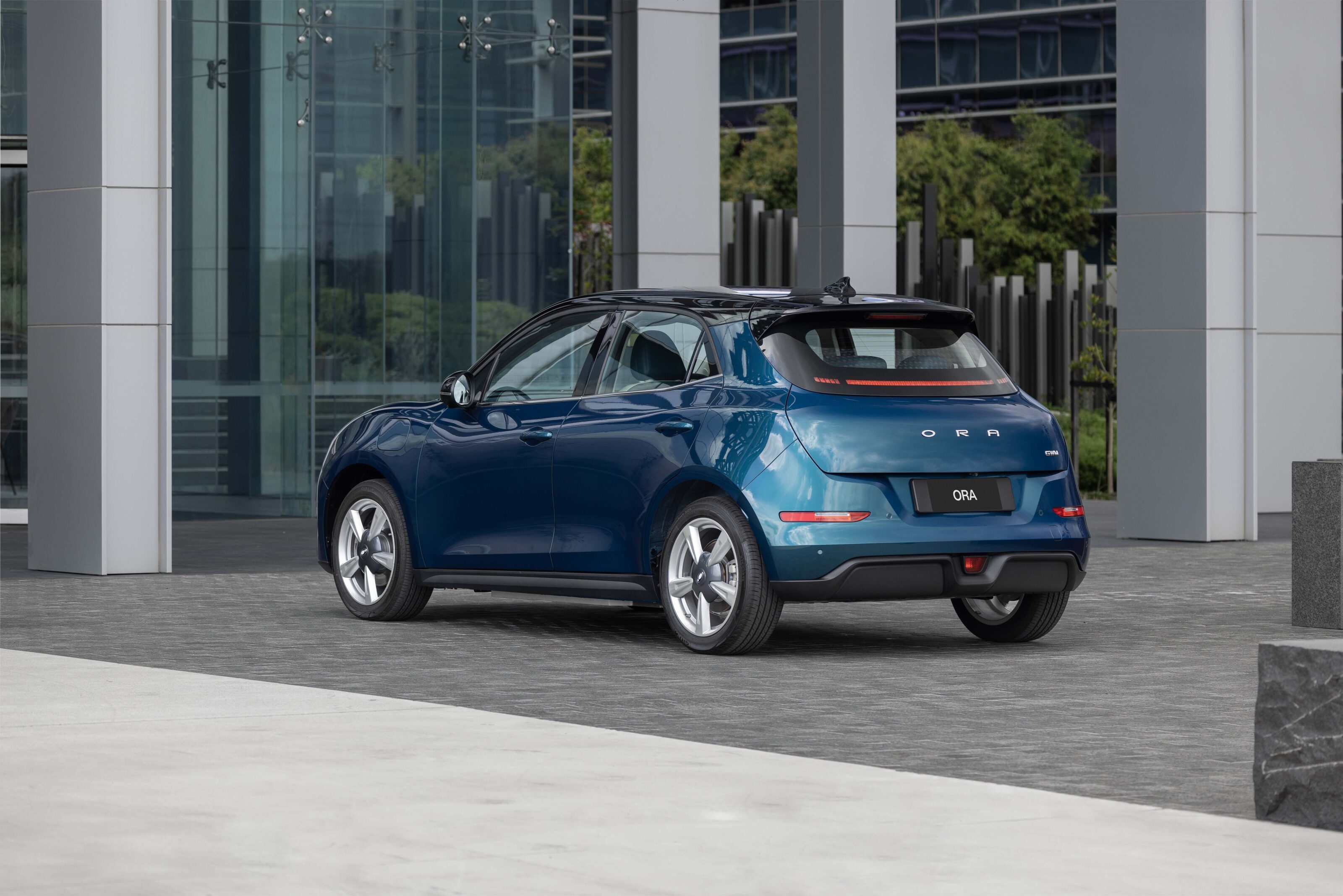
About the size of a Volkswagen Golf, the Ora lands with a $43,990 (before on-road costs) starting price allied with a 310km WLTP driving range – dead even with the starting price of an MG ZS EV Excite.
With Ora drive-away pricing starting at $44,490 in the Northern Territory, it should undercut the ZS Australia-wide, but with states and territories differing in their incentives, pricing becomes a little muddy.
It is based on the (unfortunately named, but quite innovative) ‘LEMON’ platform that, like BMW’s cluster architecture, can be stretched into three different segments, allowing everything from this electric Ora to the related Haval H6 GT to be built on it. Neat.
There’s some spunk to its design, with little fish scale details sprinkled on the front bumper and traditional taillights banished in favour of LEDs behind the tailgate glass. Proportionally, it’s a little strange, but the unique appearance is part of Ora’s charm.
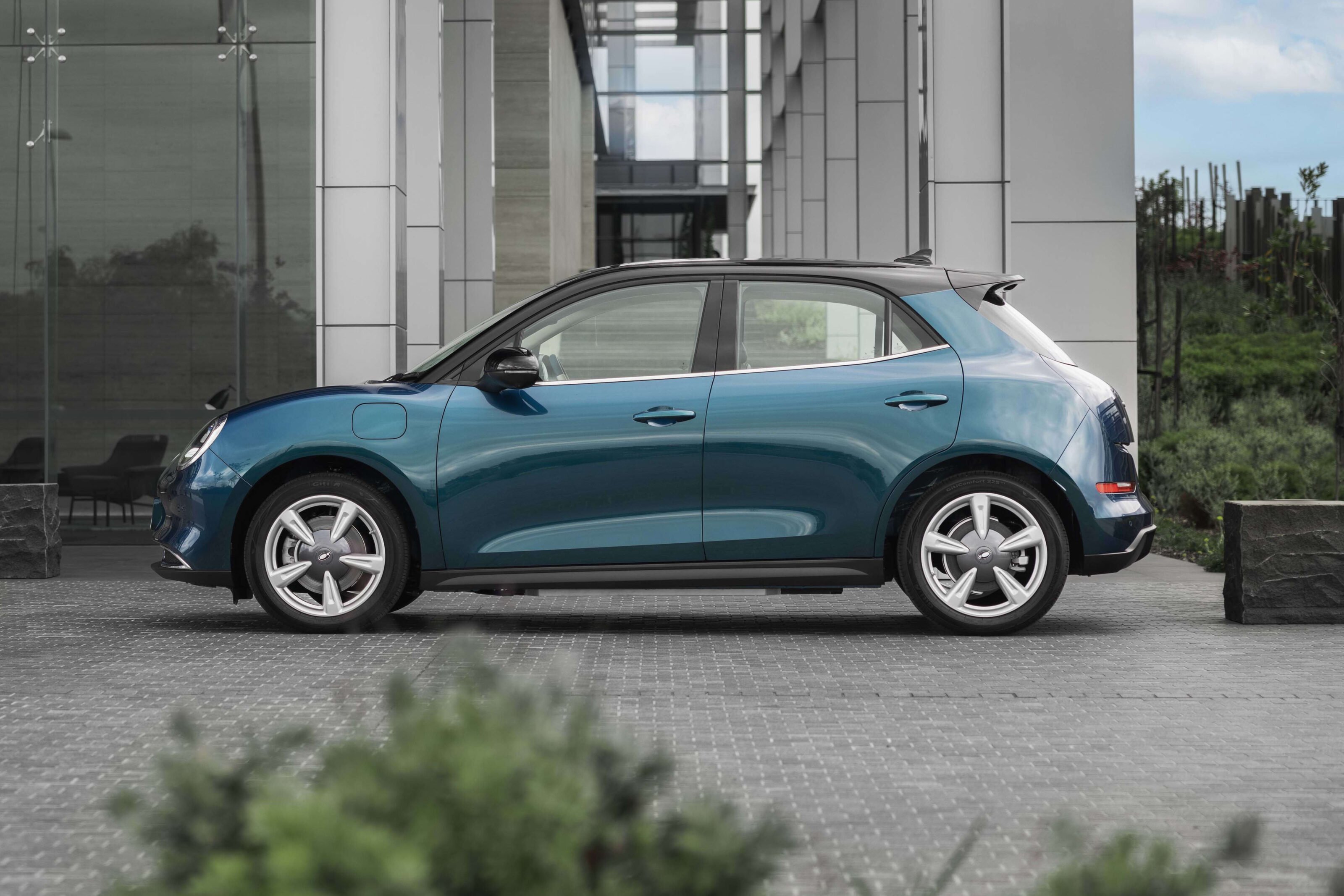
JUMP AHEAD
- How much is it, and what do you get?
- How do rivals compare on value?
- Interior comfort, space and storage
- What is it like to drive?
- How much range does it have?
- How safe is it?
- Warranty and running costs
- VERDICT
- Specifications
How much is it, and what do you get?
GWM has locked in three Ora trims for Australia, with five exterior colours – including the Aurora Green pictured – to choose from. Four paints are paired with black upholstery, but our test car shows off the two-tone turquoise/cream colour scheme paired with the Aurora Green paint.
| GWM Ora standard features | |
|---|---|
| 10.25-inch digital driveru2019s display | Keyless entry |
| 10.25-inch multimedia touchscreen | LED headlights |
| 18-inch alloy wheels | Surround-view camera |
| 6 speakers | Vinyl upholstery |
| 6-way power driveru2019s seat adjustment | Wired Android Auto |
| Dual-zone climate control | Wired Apple CarPlay |
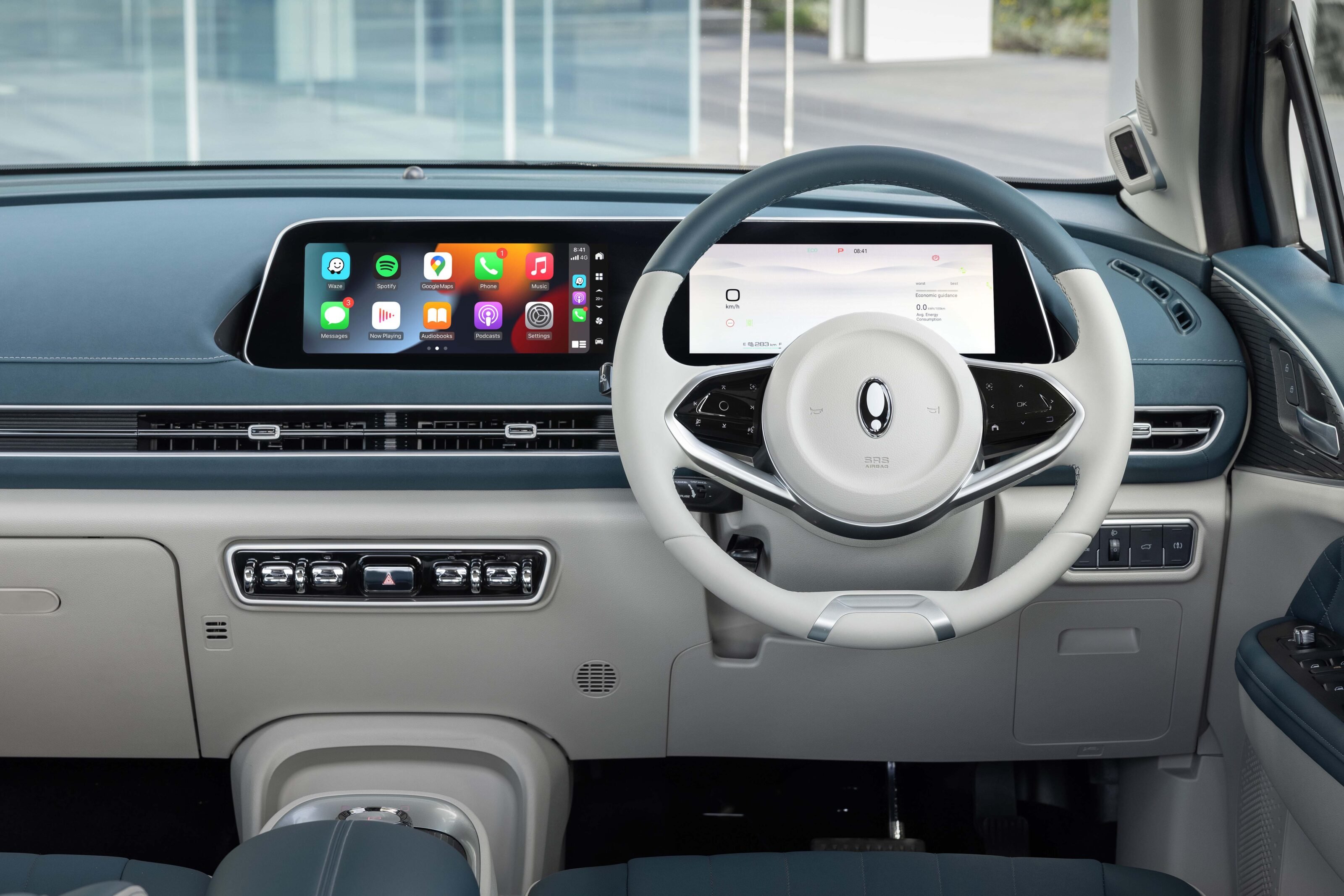
Jumping up to the larger battery pack doesn’t bring any added equipment for the Ora, only a 110km driving range bump. The only way to get a little more out of your Ora is to head for the $53,990 (before on-road costs) GT trim, which adds:
| GWM Ora GT extra features | |
|---|---|
| Automatic parking | Power tailgate |
| Heated windscreen | Red brake calipers |
| Panoramic sunroof | Sporty 18-inch alloy wheels |
| Power driveru2019s seat with memory | Sporty bumpers and grille |
The Ora’s touchscreen is responsive but as with many contemporary EVs, a large number of the HVAC functions are hidden behind menus and layers within the touchscreen. There are, at least, a few shortcut buttons below the screen.
With such a brief interaction it’s hard to truly evaluate the usability of the touchscreen, other than to say it’s a very different user interface to your typical big-five brands.
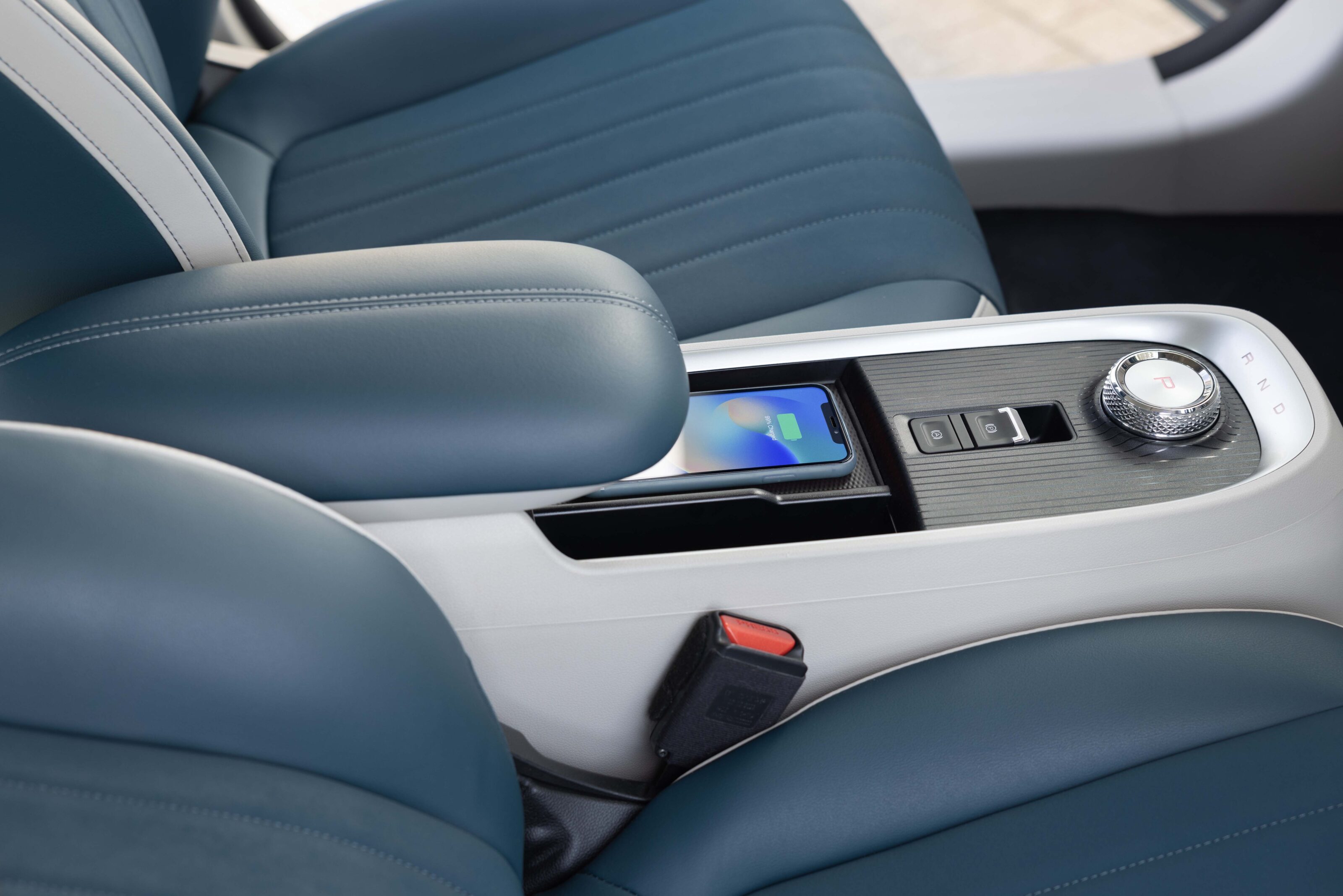
How do rivals compare on value?
With previously budget-oriented brands such as Kia, Hyundai, Toyota and Subaru electing not to play in the sub-$50K electric vehicle space, innovative and quirky EVs are leaving their mark in Australia.
Australia’s cheapest electric car, the MG ZS EV (from $42,990 drive-away), isn’t one of them, though. The slightly more expensive Chinese compatriot, BYD’s Atto 3 ($48,011 before on-road costs), certainly is.
Like the Ora, the Atto 3 is bursting with technology and quirky cabin details, though the rollout of BYD’s smartphone connectivity and moving-target warranty promises has drawn scepticism. GWM’s more established dealer network and longer presence in Australia may end up being a big drawcard.

Interior comfort, space and storage
Current GWM and Haval products have adventurous cabins, but the colour-coordinated electric Ora will have you exclaiming wows and expletives as you hop in.
The funky Mini-inspired HVAC shortcuts on the centre console, sparse buttoning, Hyundai Ioniq 5-esque central storage area and retro-futuristic styling with textured seats are fun details. Although plushly upholstered in colourful leatherette to match the paintwork, the pews lack under-thigh support or tilt for taller drivers.
Style has come at the cost of some basic cabin ergonomics, too. Starting with the driving position, which is particularly awful (and trust me, with an Alfasud and Renault Sport Clio in the garage, I know a bad driving position when I feel one). The large steering wheel is set too far away from the driver, with inadequate telescoping adjustment.
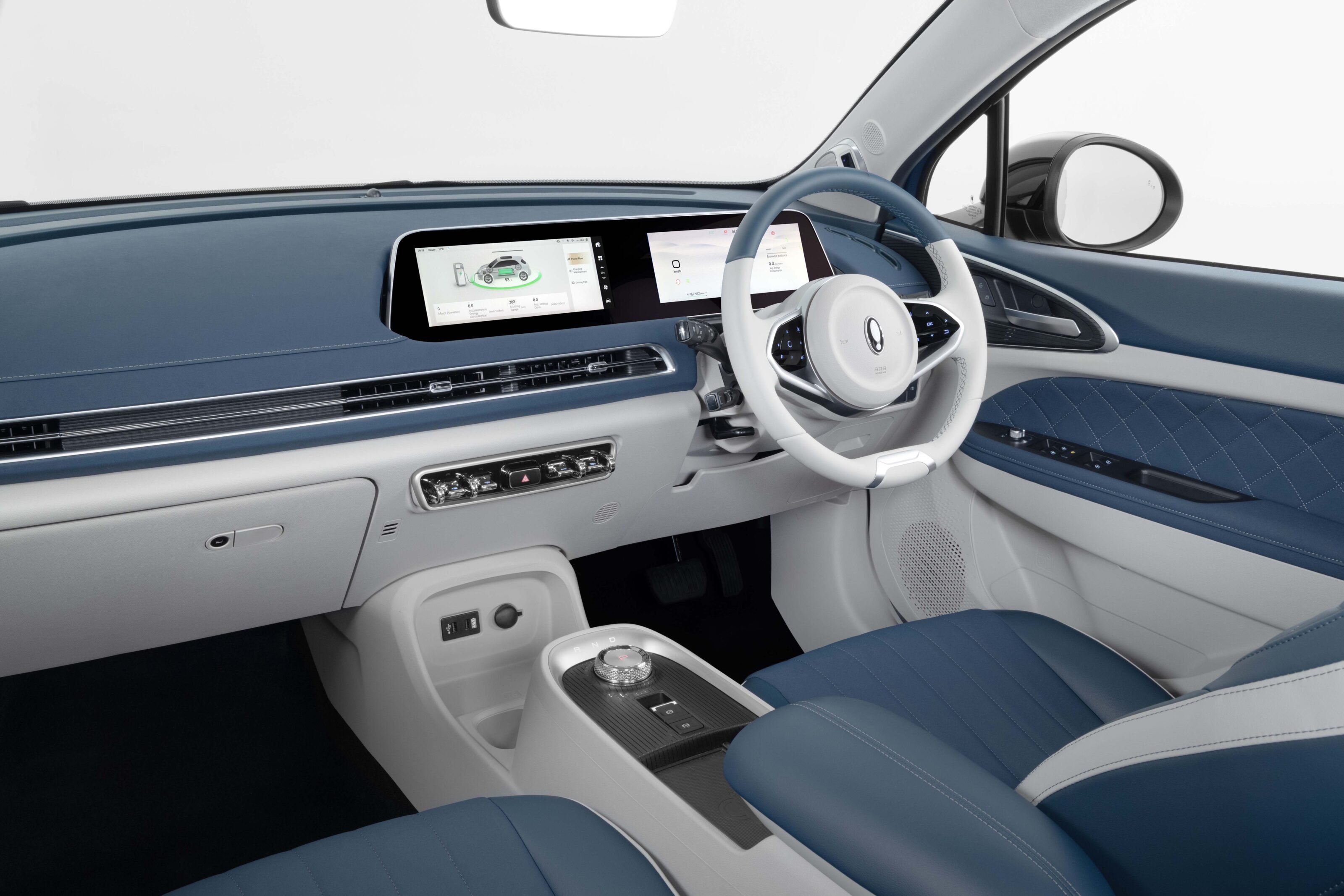
Odd driving positions sometimes help with packaging, and that’s the case with the Ora. As the driver needs to sit close to the pedals to reach the wheel, the rear quarters are remarkably spacious and airy.
At 188cm tall, I had generous knee and toe room, and decent headroom. You don’t need to step up to a small or medium SUV to fit four in comfort (or five with reasonable ease).
Where the Ora does suffer next to most small hatchbacks is boot space. We’re not sure why it’s this way, but the boot lip rises a good 35cm above the boot floor, meaning you have to lift heavy items a long way up to fit in the 228L space. There’s no space-saver spare included either.
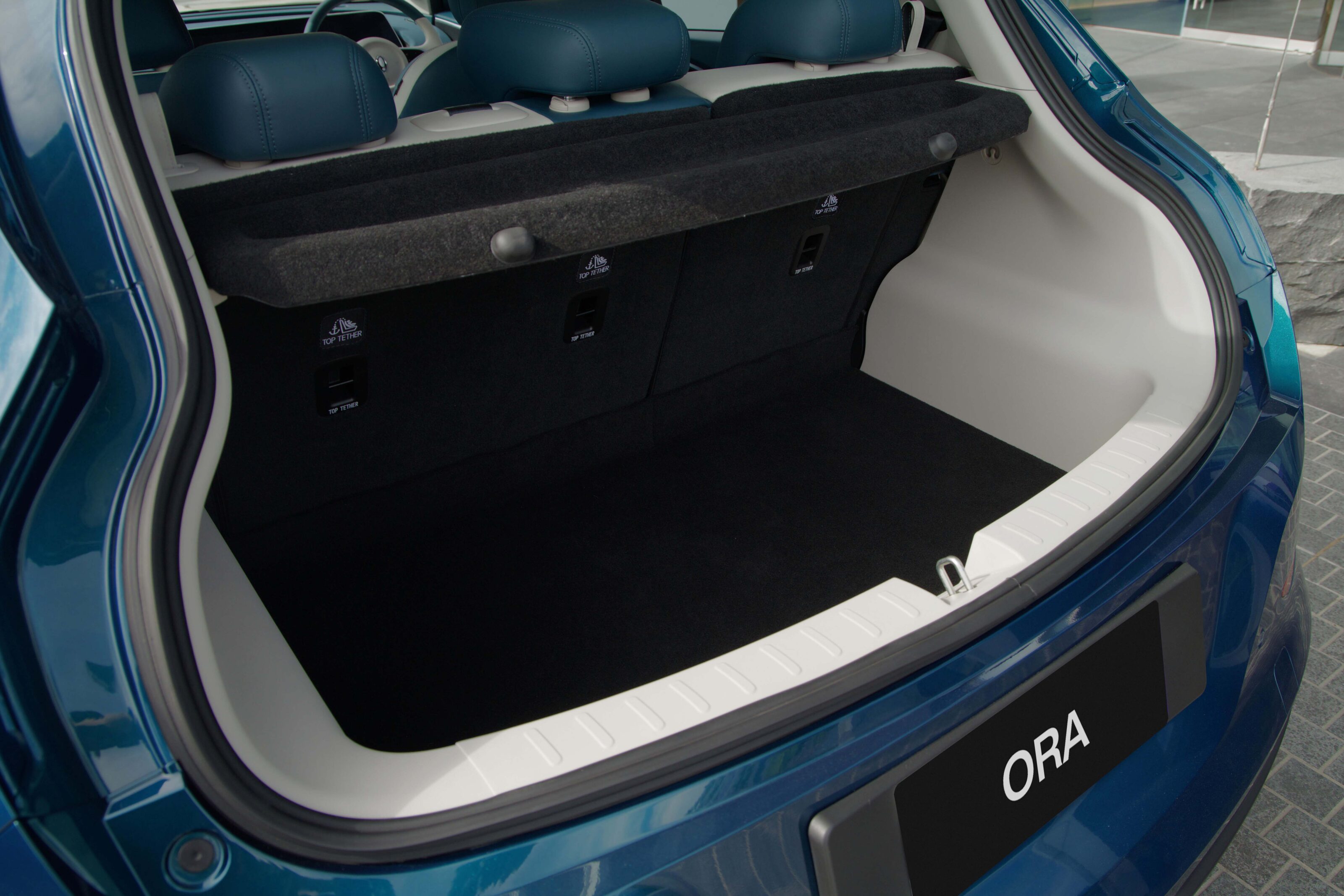
What is it like to drive?
Our time with the Ora may have been brief, but there’s a lot to talk about from this new brand. For a start, you don’t have to start it. Like a Tesla or Polestar, you just sit on the seat, put your foot on the brake, select ‘Drive’ with the rotary gear selector and you’re away.
The camera on the A-pillar has facial recognition too. How this works in practice, we’re not entirely sure yet, but GWM said there’s the capability to automatically adjust settings and preferences for each driver. Creepy, perhaps, but something Subaru has also offered for a while.
All Oras have a single, front-mounted electric motor capable of deploying 126kW of power and 250Nm of torque. GWM claims a 0-100km/h sprint in 8.4 seconds, which feels on the money for its 1540kg kerb weight.
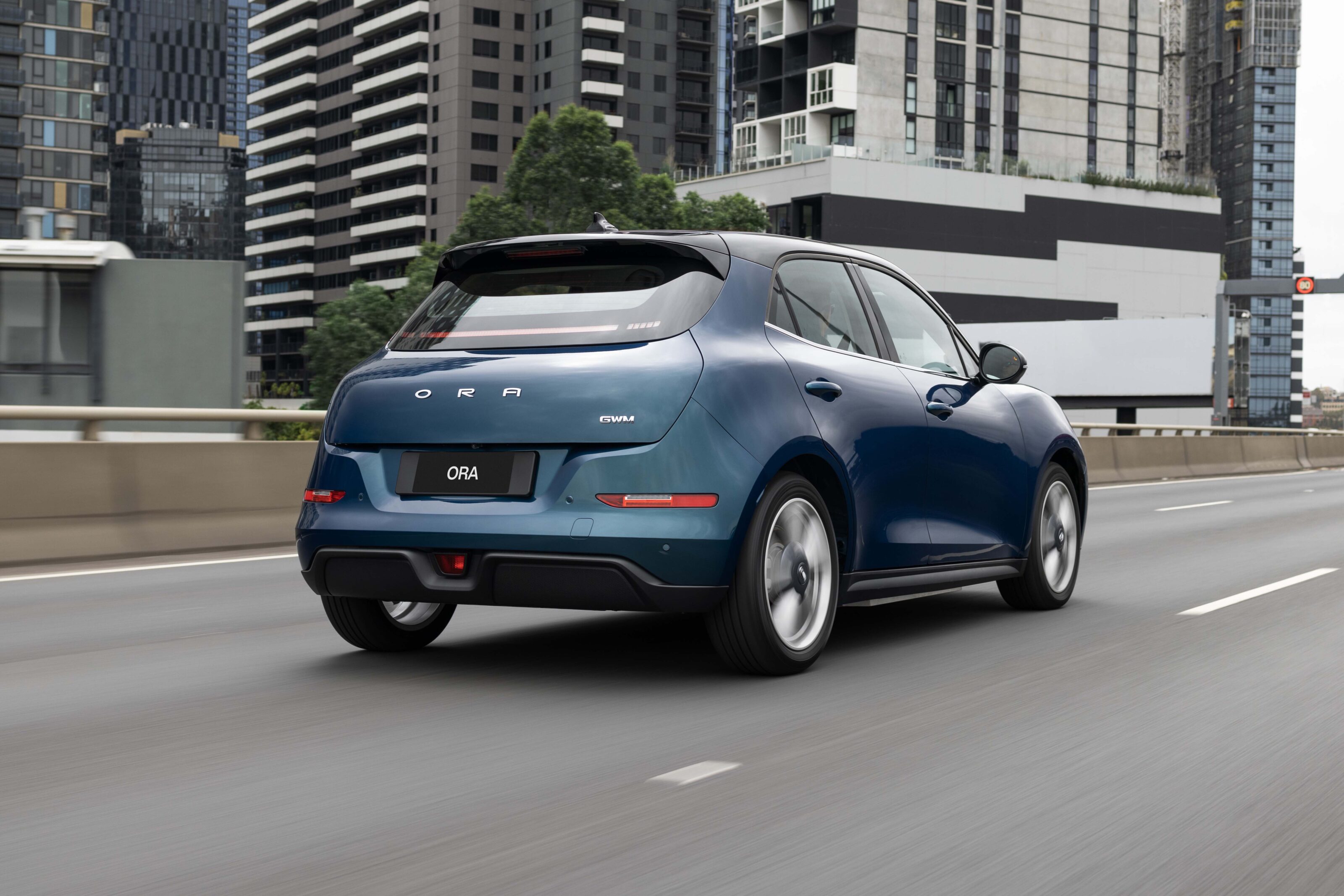
The Ora doesn’t bound off the line like a scalded, err, cat, owing to GWM’s sloppy throttle response calibration. It’s doughy to the point of absurdity. You can nail the throttle and count to two before anything meaningful happens, like old-school turbo lag.
Except that a similar thing happens when you lift in the one-pedal drive mode, the Ora taking a moment before full retardation is applied. It’s a little unnerving for the engaged driver.
But I can see a benefit here; like you might smooth data on a graph to make it easier to interpret, the soft throttle may make for less spiky driving for those with the dreaded taxi foot.
The steering is similarly vague. The retro two-spoke wheel doesn’t feel connected to the front 215/50 R18 Gitisport tyres, and the rack is super light and rather slow in its responses.
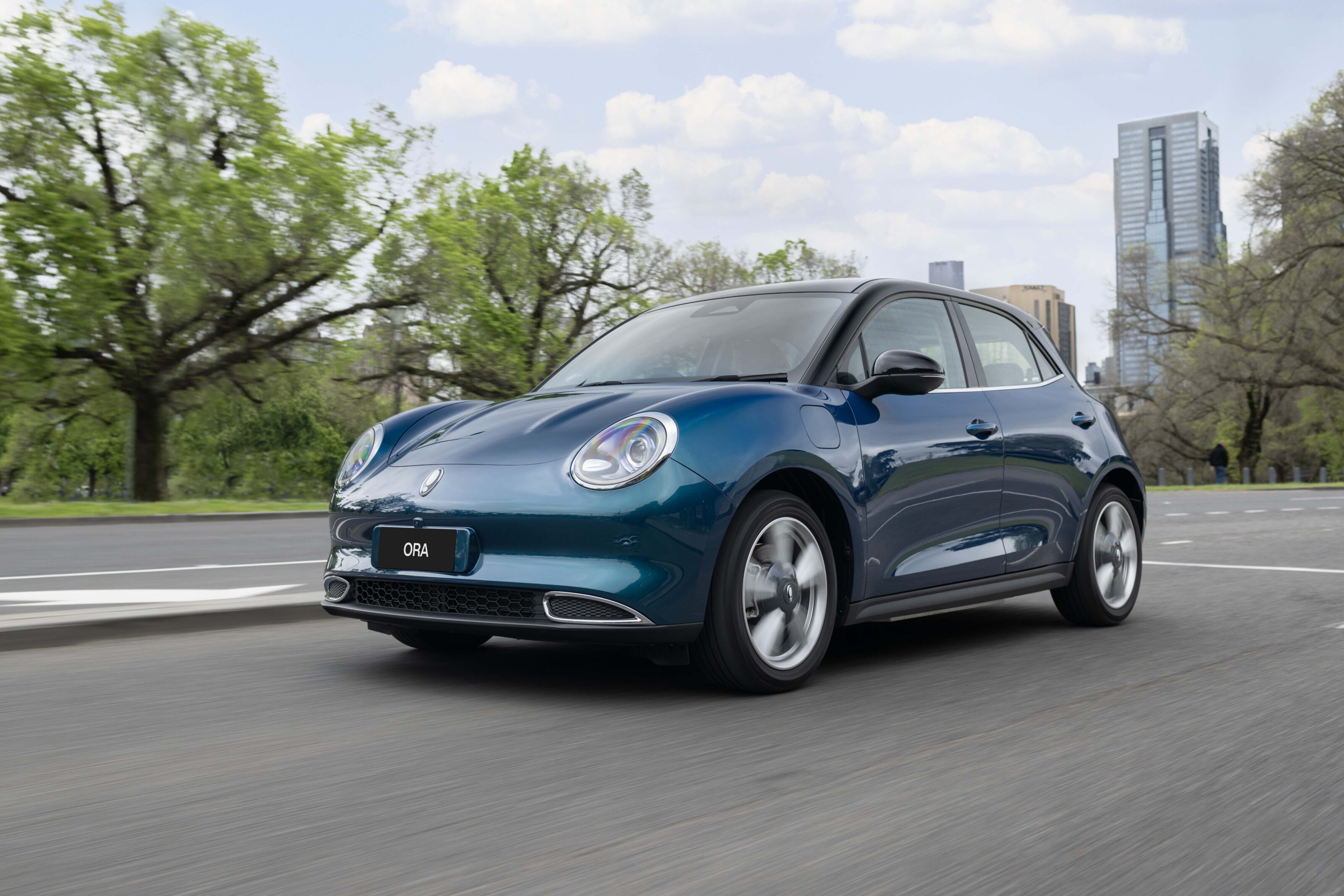
For its intended function as a city car, the Ora’s chassis is adequate. The body rolls, but it settles well enough once turned into corners and crucially, provides a plush and comfortable ride.
Our first taste suggests a more natural flow through corners than the heavier and bigger BYD Atto 3. The GWM Ora is no drivers EV, but that’s OK. It’s comfortable, quiet and serene in the cabin, requiring nearly no skills as a pilot.
The compact dimensions of the Ora and its conventional (from the inside) glasshouse also mean this is an easy EV to see out of, and the narrow body should make it easy to thread through the city.
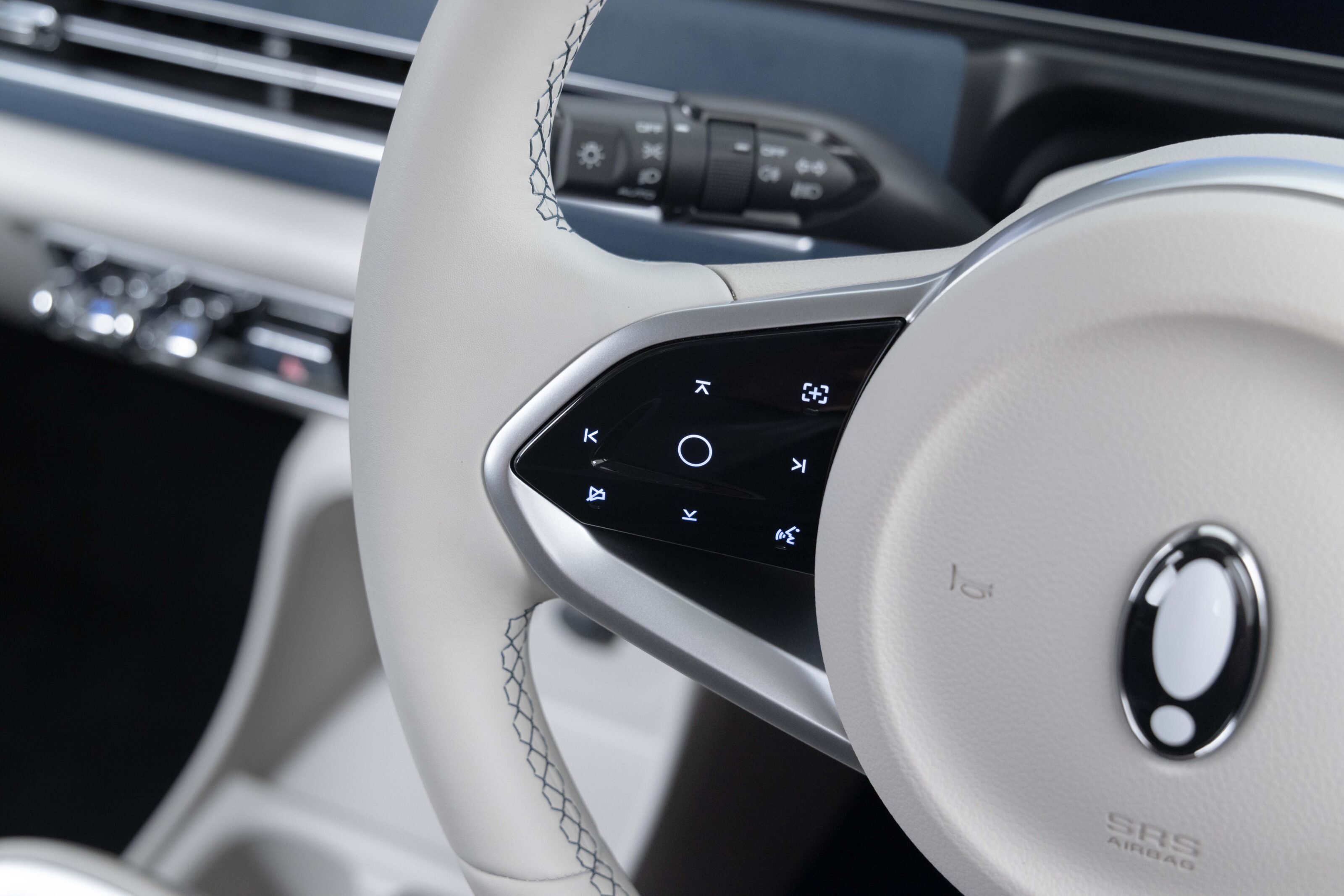
How much range does it have?
The Ora is available with two battery sizes. The smaller of the two (and the car we drove) is a 45.4kWh (usable) lithium-ion pack for a WLTP driving range of 320km, relying on a 14.6kWh/100km efficiency rating.
A larger pack offers 59kWh of usable capacity, for a 420km driving range with slightly lower 14.1kWh/100km consumption. With a near-identical 60kWh battery, the long-range Atto 3 matches the Ora for stamina.
GWM is currently sourcing batteries from CATL, the world’s largest battery manufacturer. However, there are plans afoot to install SVolt batteries, a company in which GWM is heavily invested.
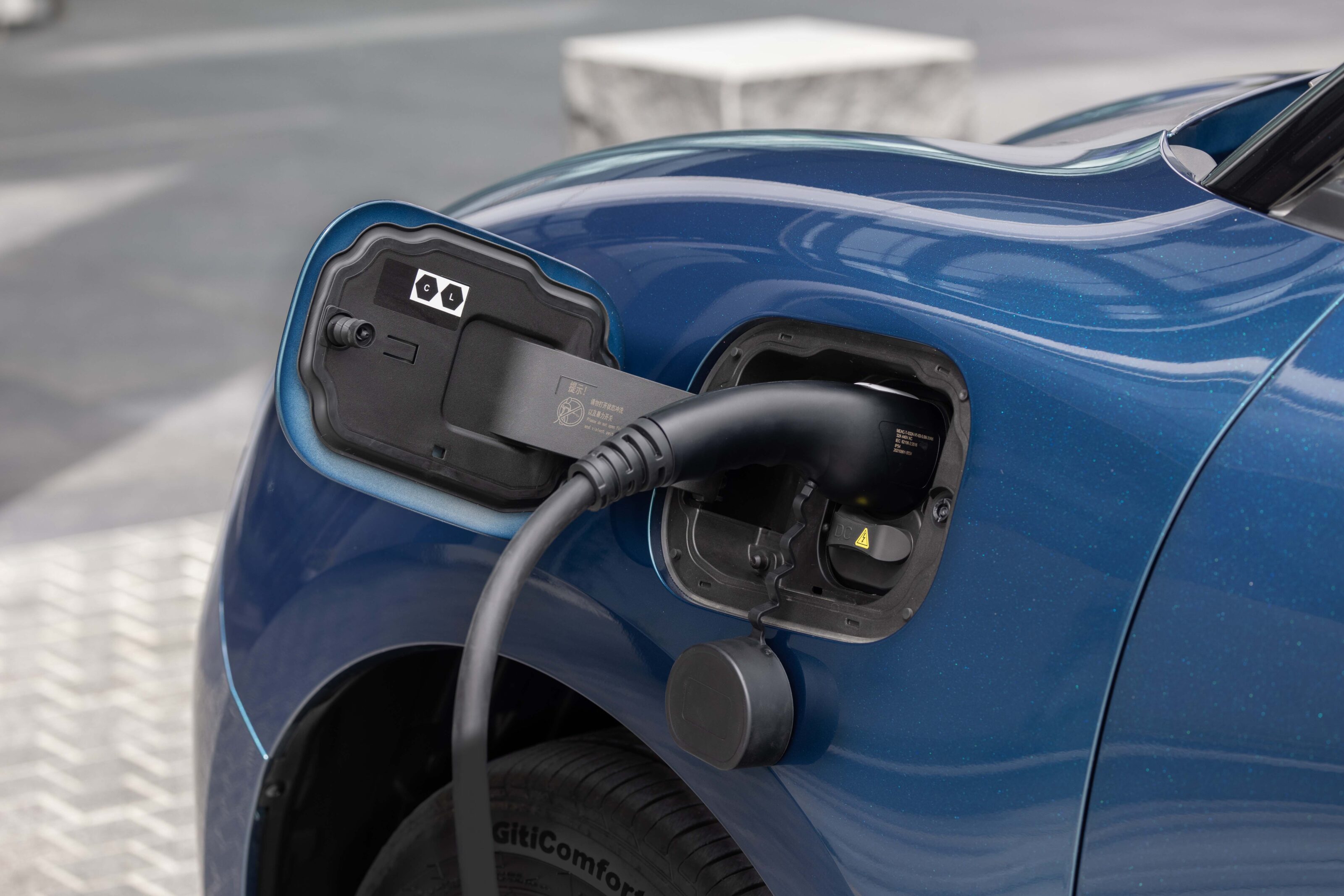
Using a DC fast charger, the Ora will take on electricity at a rate of 80kW, for a 10-80 per cent recharge in 41 minutes for the standard range battery, or 58 minutes for the extended range pack.
Home charging on an 11kW three-phase wallbox will take six hours and 30 minutes for a full charge, and a 240-volt wall plug 30 hours.
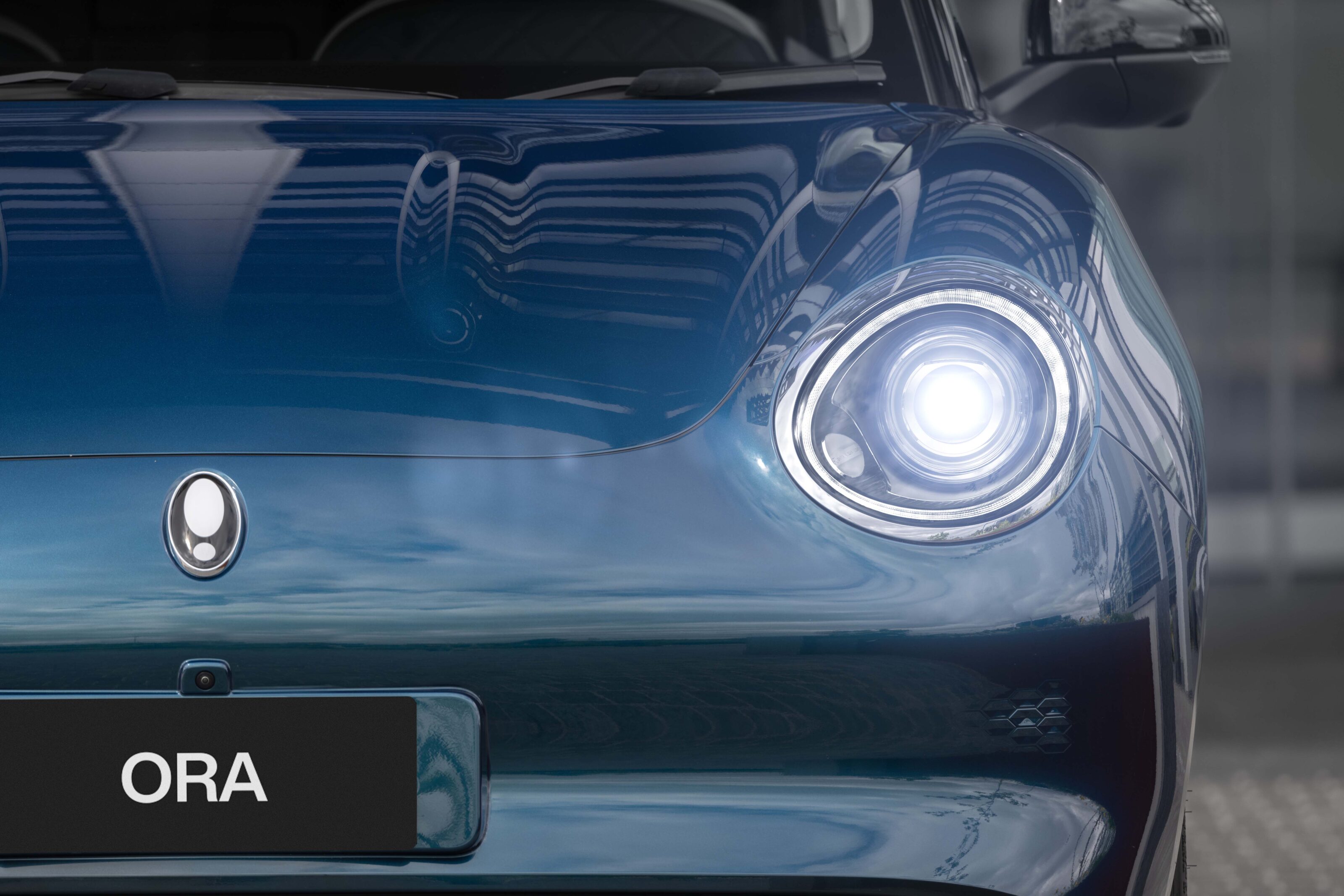
How safe is it?
The Ora scored five-stars in 2023 ANCAP safety testing, recording particularly high marks (92 per cent) for adult occupant protection, and 93 per cent in safety assistance.
We were not able to properly evaluate driver assistance systems such as lane trace assist and adaptive cruise control in the controlled proving ground environment.
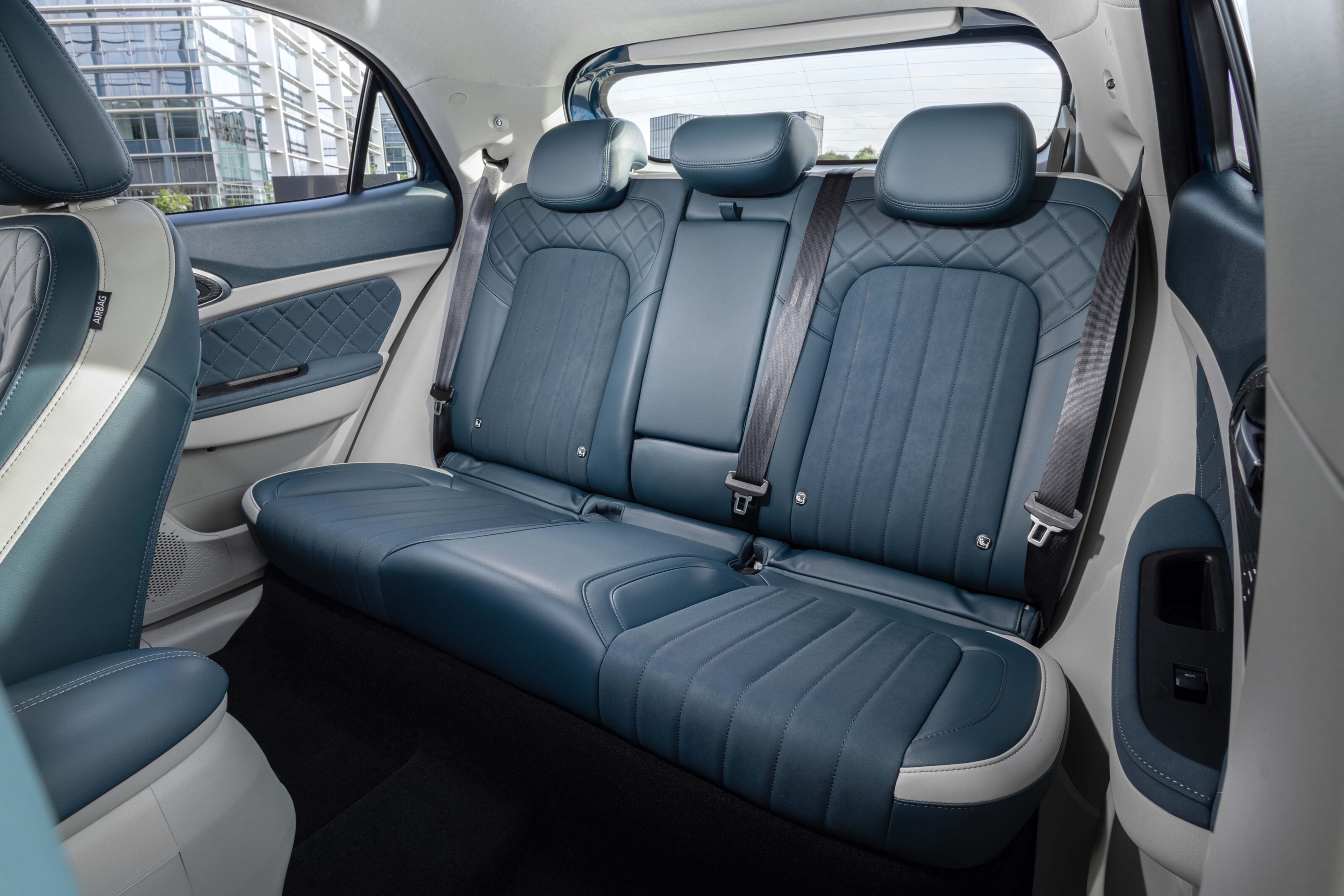
| GWM Ora safety features | |
|---|---|
| 360-degree camera | Lane follow assist |
| 7 airbags | Rear AEB |
| Adaptive cruise control | Rear cross-traffic alert |
| Blind-spot monitoring | Traffic sign recognition |
| Front auto emergency braking with pedestrian, cyclist and junction detection | |
| Lane-keep assist | Tyre pressure monitoring |
Warranty and running costs
GWM has not confirmed warranty coverage or capped-price servicing costs for the Ora yet, though as it matures in Australia, the brand will look to stay consistent with its seven-year warranty.
At launch, executives showed interest in warranties potentially even longer than seven years if possible, but anything shorter than seven years with unlimited kilometres was comprehensively ruled out.
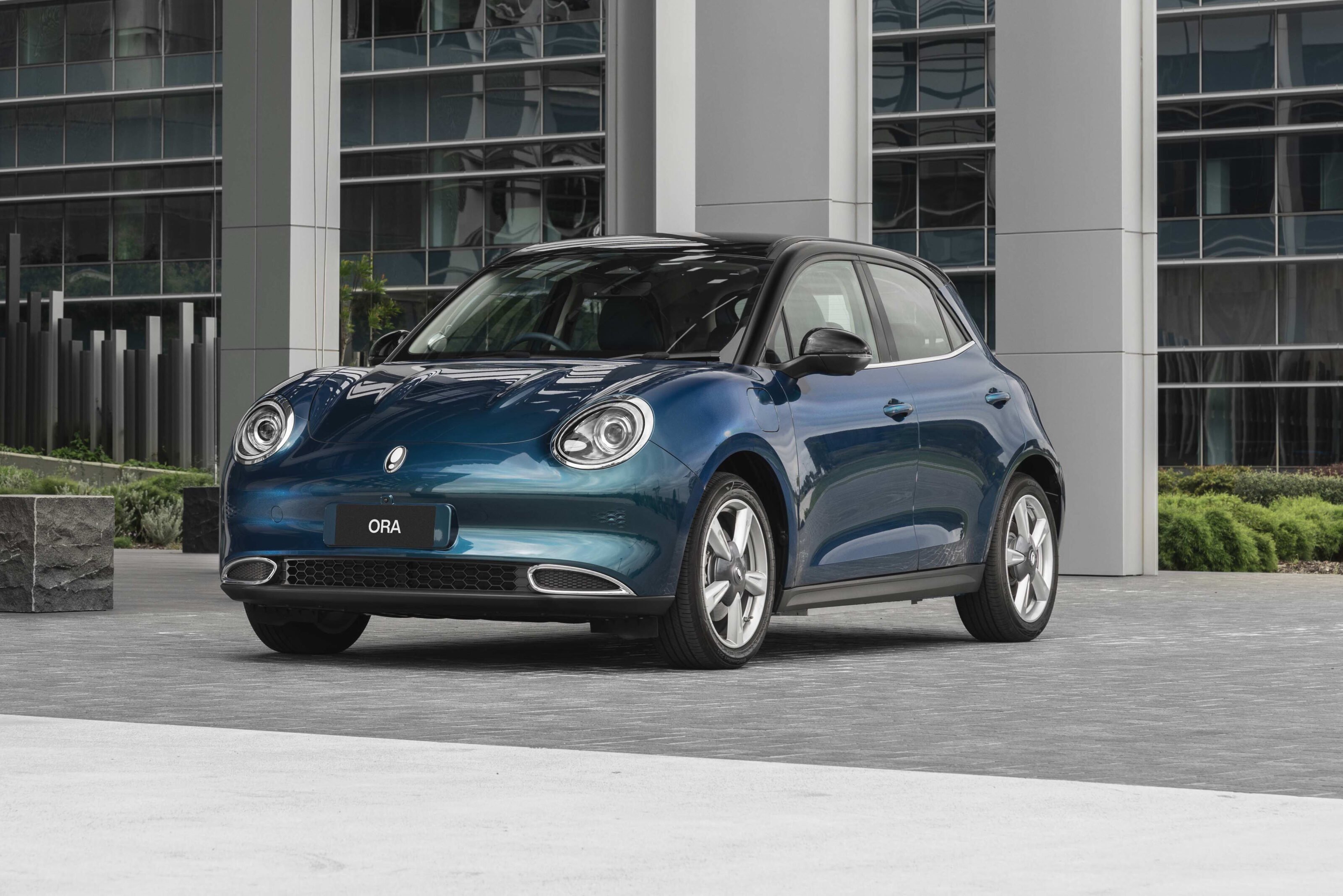
VERDICT
The GWM Ora deserves its Funky Cat nameplate in other markets. This is a seriously different and intriguing electric vehicle.
On paper, the value proposition is there with loads of technology and a respectable WTLP driving range of over 400km for the extended-range vehicle.
The GWM Ora is no drivers EV, but that’s OK. It’s comfortable, quiet and serene in the cabin, requiring nearly no skills as a pilot. But, for an electric vehicle to mobilise the urban masses, its comfort and refinement ought to be enough for most.
2023 GWM Ora specifications
| GWM Ora | Standard range | Extended range |
|---|---|---|
| Price | $43,990 drive-away | $47,990 drive-away |
| Drivetrain | ||
| Motor | Single asynchronous | |
| Power | 126kW | |
| Torque | 250Nm | |
| Gearbox | Single-speed reduction gear | |
| Battery size (usable) | 45.4kWh | 59kWh |
| Driving range (WLTP) | 310km | 420km |
| Chassis | ||
| Body | steel, 5-door, 5-seats small hatchback | |
| L/W/H/Wu2013B | 4235/1825/1603/2650mm | |
| Weight | 1540kg | 1580kg |
| Boot | 228-858L | |
| Suspension | Front: struts, coil springs, anti-roll bar. Rear: torsion beam | |
| Steering | electric rack and pinion | |
| Front brakes | ventilated discs, single-piston caliper | |
| Rear brakes | solid discs, single-piston caliper | |
| Tyres | Giti Sport | |
| Tyre size | 215/50 R18 | |
| Safety | ||
| ANCAP rating | NA (Euro NCAP 5 star) | |
| Performance | ||
| 0-100km/h | 8.4sec (claimed) | |
Things we like
- Cabin design and execution
- Plush ride quality
- Spacious back seat
Not so much
- Vague steering feel
- Unresponsive throttle
- Small boot with high load lip
We recommend
-
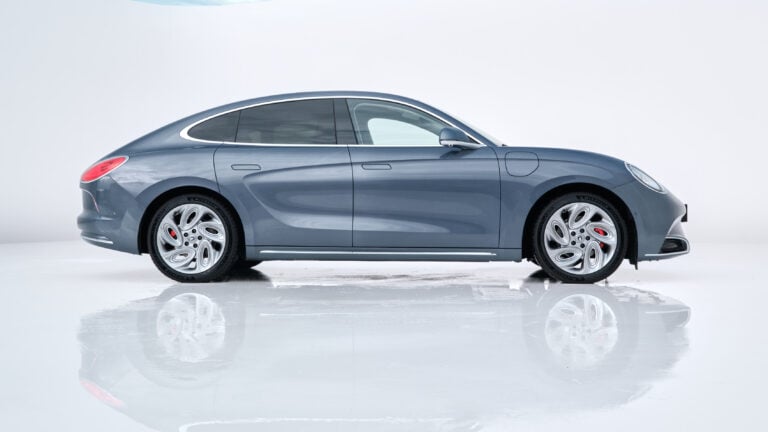 News
NewsGWM Ora Next Cat to be named Ora Sport in Australia if released locally
GWM's dedicated electric sub-brand has launched a new model, but it's not yet confirmed for our shores
-
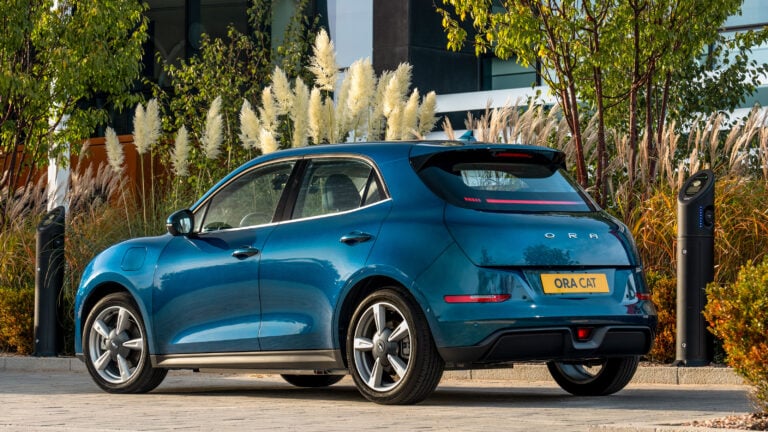 News
NewsGWM Ora to launch in Australia as budget electric brand
A new cut-price electric brand is preparing to launch into the Australian market next year
-
 News
News2025 New Car Calendar: All the new cars coming to Australia
Take a look at our list of what is expected to launch in Australia in 2025 – plus those we might not see locally just yet


